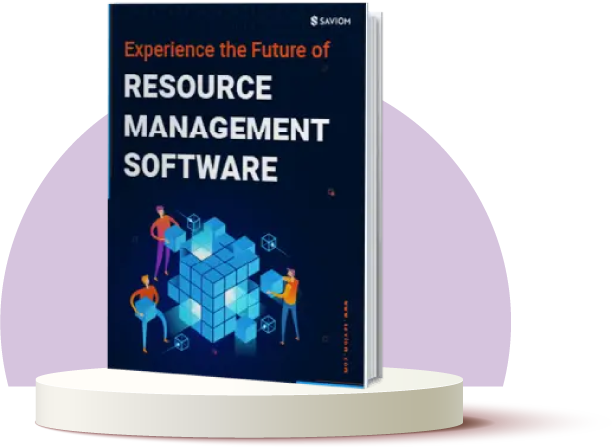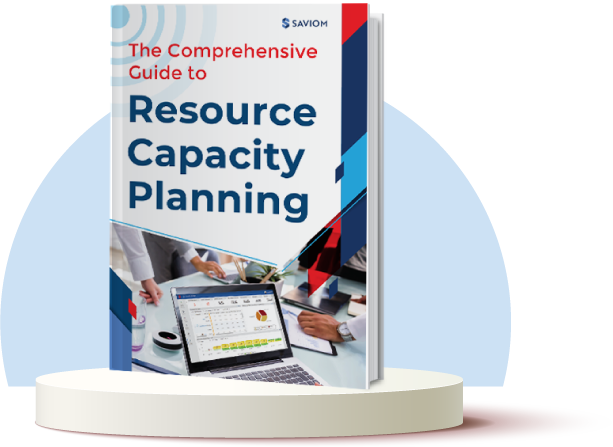Are you in search of a comprehensive software that can manage your employees’ entire lifecycle?
Are you looking for a solution that unifies talent acquisition, performance management, and retention in a single platform?
A holistic talent management software can address these needs, help you attract top talent, ensure you have the right people in the right roles, and keep them engaged, productive, and aligned with their career goals.
However, with so many talent management systems available in the market, how do you choose the best one for your business?
Don’t worry! This guide offers you insights on how to choose the best software for your company.
Let’s dive right in!
What is Talent Management Software?
Talent management software (TMS) is a comprehensive suite of applications designed to streamline and automate every stage of the employee lifecycle within an organization. It helps manage various processes such as recruitment onboarding, performance management, learning and development, compensation, and succession planning.
Now, let’s explore the crucial components of a typical talent management system.
Read More: 9 Steps to Streamline Your Talent Management Process
Key Components of Talent Management Software
Below are the core functionalities of talent management software; let’s explore each of them:
-
Recruiting & Onboarding
Talent management software features an applicant-tracking system (ATS) to source, track, and manage job applicants globally. It also helps in job postings, sends automated emails to candidates, and ensures a smooth, efficient hiring process. Additionally, the onboarding modules simplify the integration of new hires by handling all administrative tasks, connecting them with the company culture, and facilitating initial training programs.
-
Performance Management
This component of talent management facilitates goal setting, performance reviews, continuous feedback, and readjustment of goals when needed. This ensures that employees are aware of their strengths and weaknesses, fostering professional growth and contributing to the organization’s overall success.
Read More: What is Employee Performance Management, and Why it is Important?
-
Compensation Management
This module facilitates payroll processing, salary planning, adjustments, and market comparisons to ensure fair compensation. It also enables managers to design and track incentive programs such as bonuses, commissions, etc. Additionally, the module integrates performance data to align rewards with employee achievements.
-
Training and Development
This feature supports talent managers in tracking skill gaps and recommending targeted training plans, ensuring the workforce remains competent and competitive. Further, these training programs align employees with current trends and prepare them to meet evolving business needs while keeping them engaged and motivated.
Read More: Top 10 Business Benefits of Training Scheduling Software
-
Employee Engagement
A Gallup study reveals that “highly engaged workplaces experience 41% lower absenteeism.”
Employee engagement features are designed to create a motivating work environment through surveys, feedback collection, and recognition programs. This data helps organizations assess and enhance engagement levels regularly, allowing for targeted improvements and sustained positive performance.
-
Analytics and Reporting
This component provides insights into employee metrics and KPIs like performance, engagement, turnover rates, training impact, recruitment efficiency, etc. By collecting this data, the software generates detailed dashboards and reports, enabling talent managers to make informed, data-driven decisions and strategic plans.
-
Compliance Management
Compliance management ensures the organization adheres to all relevant employment laws and regulations. It includes maintaining up-to-date records of company policies and ascertaining that they align with legal requirements. The software also keeps detailed audit trails of HR actions and decisions, providing a clear record for internal reviews and external audits.
Now, let’s understand the significance of deploying talent management software into your firm.
Benefits of Implementing Talent Management Software
Talent management software offers numerous benefits that directly impact HR operations and overall company performance. It streamlines various aspects of the recruitment process, such as job postings, application tracking, and candidate assessments. As a result, it fast-tracks the selection and hiring process, reducing the time required to fill vacant positions.
Once new employees are onboarded, TMS facilitates performance management by enabling goal setting, skills tracking, regular feedback, and performance reviews. This helps align individual contributions with organizational objectives, ensuring continuous improvement and development.
Additionally, talent management solutions help in automating various administrative tasks such as payroll, compliance tracking, and benefits management, freeing up HR personnel to focus on other critical initiatives. It also provides real-time reports and analytics, allowing for data-driven decision-making and accurate forecasting of workforce needs.
These solutions enable talent managers to plan and organize training schedules for employees. It allows organizations to maintain a repository of training material and helps allocate the right trainers and trainees to suitable programs. Finally, TMS provides tools for succession planning that help companies identify and mentor high-performing employees for leadership roles.
Now that we have understood the benefits of implementing talent management software, let’s go through the key factors to consider while choosing it for your firm.
Read More: The Benefits of Talent Management: How to Transform Your Business Potential?
What Factors to Consider While Selecting the Best Talent Management Software?
While choosing talent management software for your firm, it is essential to go through some criteria to ensure that the solution aligns with your organization’s needs.
Given below are some of the factors you must consider to make an informed decision.
Business Requirements
Assessing your company’s specific demands is critical before selecting a talent management tool. First, create a checklist of must-have features you want in the software by identifying the problems you wish to address and the goals you want to achieve. Then, invest in software that meets your business demands and aligns with your long-term organizational needs.
Software’s Cost and ROI
Budgeting plays another pivotal role in making the right decision when selecting talent management software. For this, evaluate the total cost of the software, including implementation, subscription fees, and ongoing maintenance. Then, compare different price models and choose one that fits your budget and provides good value. Additionally, consider the software’s influence on productivity, employee retention, and overall HR efficiency when calculating the potential ROI.
Read More: How to Select the Best Software Using Cost-Benefit Analysis?
User Interface (UI) & User Experience (UX)
A user-friendly interface is vital to ensure your team quickly adopts the new system. Hence, choose the system with a clean, intuitive, and simple user interface to facilitate easy navigation and accessibility to all users, from HR professionals to employees. This user-friendliness leads to a positive user experience, optimizing your HR operations and maximizing employee engagement.
Integration with Existing Systems
One of the crucial factors to consider when selecting a talent management tool is its ability to integrate with existing applications such as HR systems, such as payroll, benefits administration, and time tracking. Effective integration ensures data consistency across platforms, eliminates unnecessary manual data entry, and enhances overall operational efficiency.
Scalability and Flexibility
Select a scalable software that can handle a growing workforce and adapt to changing business priorities and needs without requiring a complete update. Additionally, flexibility allows you to customize features and workflows to align with your company’s evolving requirements. Thus, invest in adaptable software to support your talent management’s long-term success.
Read More: What is Configuration Management, and Why is it Important?
Analytics and Real-time Reporting
As per a Deloitte study, “84% of business and HR leaders consider people analytics pertinent, and 79% are inclined to utilize data in their hiring procedures.”
Robust analytics and real-time reporting capabilities are essential for data-driven decision-making. These tools help talent managers gain a holistic view of employee productivity, allowing them to analyze trends, patterns, and areas for improvement and
take relevant actions. Therefore, you must carefully assess the software’s reporting analytics before purchasing it.
Personalization and Customization Options
Since every organization’s requirements and demands are distinctive, it is vital to have software with customization options so that it can be configured to cater to your organization’s unique needs. Therefore, when selecting software, ensure the one you choose offers personalization alternatives to tailor workflows, forms, filters, data fields, and user interfaces as per your requirements.
Customer/Vendor Support
Ensure that the software you choose has reliable customer support to address technical issues or concerns that may arise. Additionally, if new updates are implemented to the software, the customer support team must assist you with proper training on how to use that. So, choose a vendor with a strong reputation for providing excellent support and resources like training and documentation, and ask them relevant questions before investing in one.
Data Security and Compliance
The software must comply with state and federal data protection regulations and have stringent security measures to safeguard sensitive employee data. That’s why look for features like encryption, access controls, and firewalls to protect your data. Additionally, it must have robust user authentication protocols to ensure that only authorized people have access to employee data.
Final Thoughts
A talent management tool offers a comprehensive solution for streamlining HR processes, enhancing employee engagement, and maximizing productivity. It simplifies recruitment, onboarding, and performance management by keeping all talent-related data in one place. If you plan to invest in one, the ways mentioned above can help you select a solution that aligns with your goals and effectively supports your workforce.
The Glossary
Read More: Glossary of Resource Workforce Planning, Scheduling and Management
The SAVIOM Solution
SAVIOM is undoubtedly the market leader in offering the most powerful and configurable Enterprise Resource Management Solution. Having more than 20 years of experience, this Australian-based MNC has a global presence in over 50 countries. It is also popular with more than 100 customers and helps them to achieve their business goals. SAVIOM also has products for project portfolio management, professional service automation, and workforce planning software which can be easily customized per business requirements.










